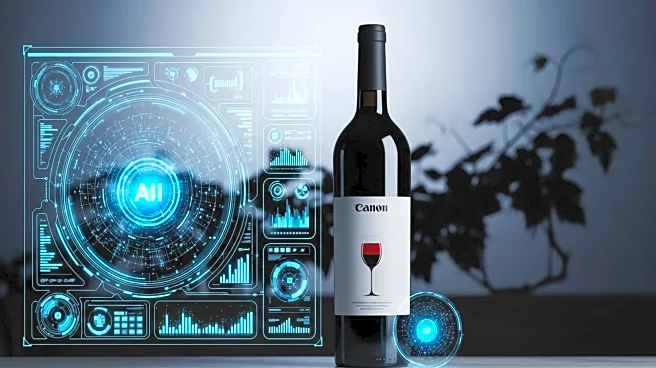What is the story about?
What's Happening?
The Vine to Mind conference, organized by EHL Hospitality Business School and the Harvard Data Science Initiative, took place in Lausanne, focusing on the integration of data science in the wine industry. The event attracted participants from over 20 countries, emphasizing the growing importance of data literacy among wine producers. Key speakers, including Dr. Xiao-Li Meng from Harvard University, highlighted the need to bridge the data literacy gap in the industry. Discussions centered on how data analytics and artificial intelligence can enhance decision-making in viticulture, from weather predictions to yield forecasting. The conference underscored the potential of AI to support traditional winemaking practices, while also addressing challenges such as data integration and the reluctance of some in the industry to adopt new technologies.
Why It's Important?
The integration of data science and AI in the wine industry represents a significant shift towards modernizing traditional practices. This evolution is crucial for improving efficiency and sustainability in winemaking, particularly in the face of climate change and market demands. By leveraging data, wineries can make more informed decisions, potentially increasing yield and quality while reducing risks. However, the industry's conservative nature poses challenges to widespread adoption. Overcoming these barriers could lead to a more resilient and competitive wine sector, benefiting producers and consumers alike. The conference highlights the need for education and collaboration to harness the full potential of data-driven innovations in winemaking.
What's Next?
The next iteration of the Vine to Mind conference is scheduled to take place in Napa Valley, California, in 2026. This move to a prominent U.S. wine region may further encourage American wineries to explore data-driven approaches. As the industry continues to grapple with integrating AI, stakeholders may need to address issues such as data sharing and resource constraints. The conference's focus on education and collaboration suggests that future efforts will likely aim to build bridges between traditional practices and technological advancements, fostering a more innovative and adaptive wine industry.
Beyond the Headlines
The adoption of AI and data analytics in winemaking raises ethical and cultural questions about the balance between technology and tradition. While data can enhance decision-making, there is a risk of diminishing the artisanal aspect of winemaking, which is deeply rooted in cultural heritage. The challenge lies in integrating technology without compromising the artistry and authenticity that define the industry. As AI becomes more prevalent, winemakers must navigate these complexities to maintain the cultural integrity of their craft while embracing innovation.















